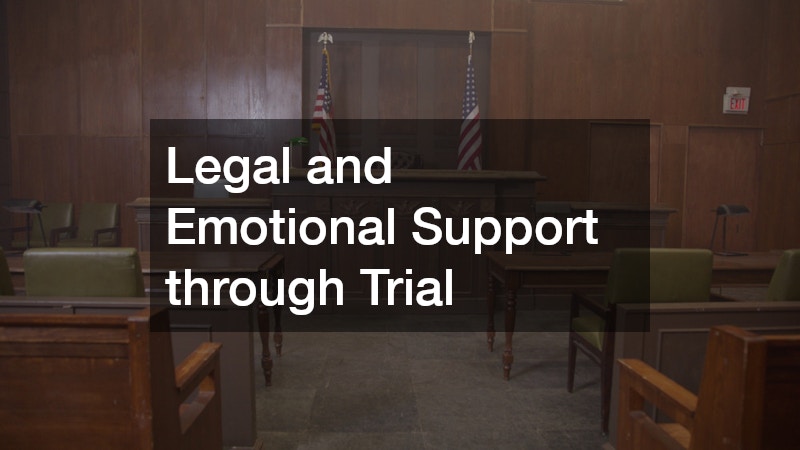When facing criminal charges, having a robust defense strategy can mean the difference between acquittal and conviction. Local criminal defense lawyers leverage their in-depth knowledge, experience, and connections to construct a formidable defense for their clients. This article explores the critical steps involved in building a solid defense strategy that local criminal defense lawyers use to navigate the complexities of the legal system.
Understanding the Case Through Initial Consultation
The process of building a solid defense strategy begins with an initial consultation with the client. During this meeting, local criminal defense lawyers gather crucial information regarding the charges and the circumstances surrounding the case.
This step is essential because it allows lawyers to form a baseline understanding of the facts before proceeding. The initial consultation serves as a platform for clients to communicate their version of events, which can significantly impact the approach taken by the defense. Building rapport and trust with the client is also a critical outcome of this phase.
Local criminal defense lawyers take great care to evaluate all aspects of the situation during the initial consultation. They ask detailed questions to uncover any inconsistencies or areas that need further investigation. With a thorough understanding of the client’s perspective, they can start crafting a narrative that aligns with the defense’s overall strategy. Additionally, lawyers use this time to educate the client on court processes, potential outcomes, and realistic expectations. This transparency helps manage client anxieties and prepares them for the path forward.
Gathering and Investigating Evidence
The next critical step in building a defense strategy is gathering and investigating evidence. Local criminal defense lawyers utilize their resources to collect any additional evidence that can support their case. This includes hiring private investigators, consulting forensic experts, and interviewing new witnesses who may provide favorable testimony. By piecing together an independent picture of the events, lawyers can challenge the prosecution’s version effectively. The goal is to uncover information that casts doubt on the prosecution’s arguments or strengthens the credibility of the defense’s narrative.
Local criminal defense lawyers are particularly skilled in analyzing forensic evidence, such as DNA, fingerprints, and digital footprints. By understanding the scientific and technical aspects, lawyers can challenge flawed or misrepresented evidence. They engage experts to review the prosecution’s findings and re-evaluate the methods used in evidence collection. If any discrepancies arise, these experts can provide testimony that refutes or diminishes the impact of the prosecution’s evidence. Employing technical experts is often a crucial component in dismantling the prosecution’s case.
Formulating a Defense Strategy
Once evidence is gathered and analyzed, local criminal defense lawyers focus on formulating a coherent and effective defense strategy. This involves synthesizing all collected data into a narrative that highlights the client’s innocence or reasonable doubt. Lawyers consider various defense tactics, such as alibi, self-defense, or constitutional violations. The strategy selected is deeply influenced by the specific facts of the case, the evidence available, and the potential jury composition. A strategic focus on the most powerful aspects of the defense can significantly sway outcomes in favor of the client.
Local knowledge plays a critical role in this phase, as understanding the legal landscape and judicial tendencies within the local jurisdiction can provide valuable insights. Experienced local criminal defense lawyers tap into their familiarity with local courts, judges, and jury pools to tailor their arguments accordingly. They might also use their networks to negotiate with prosecutors, seeking favorable plea bargains or case dismissals. A keen understanding of local nuances ensures that the defense strategy is not only legally sound but also strategically advantageous.
During this phase, trial preparation is crucial. Local criminal defense lawyers invest time in preparing compelling opening statements, cross-examinations, and closing arguments. They rehearse these components thoroughly to ensure clarity and persuasiveness. The lawyers are trained to adapt on the fly, responding to any unexpected shifts in the trial. Being well-prepared not only boosts the confidence of the legal team but also strengthens their ability to present a seamless defense. By combining preparation with strategic insights, local criminal defense lawyers capably navigate through trial proceedings.
Legal and Emotional Support through Trial
Navigating a criminal trial can be emotionally taxing for defendants, and local criminal defense lawyers provide critical support throughout this process. They reassure clients by maintaining transparent communication and preparing them for each phase of the trial. Offering emotional support helps clients remain composed and cooperative, which often reflects well in court. By acting as both advisers and confidants, lawyers create an environment that eases stress for the client. This supportive relationship can greatly enhance the client’s ability to endure the legal process.
Local criminal defense lawyers manage the logistical aspects of trial proceedings. They ensure all necessary documents and witnesses are prepared and ready to present in court. This meticulous attention to detail helps avoid last-minute surprises that could undermine the defense strategy. Lawyers also engage in proactive communication with prosecution teams to negotiate possible settlements or plea deals, if advantageous for the client. Such dialogue continues throughout the trial, as the landscape of the case can evolve in real-time.
